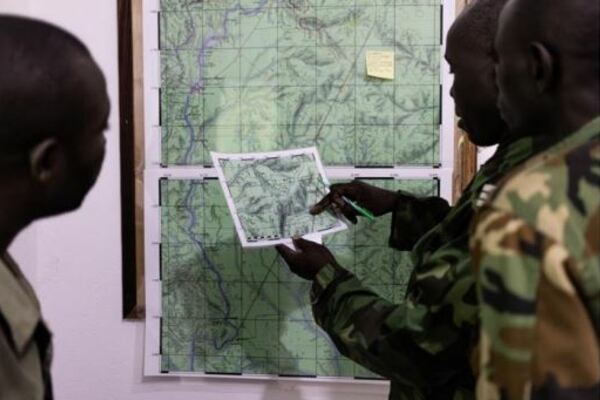
The Congo Basin is a biodiversity hotspot spanning six countries in the heart of Africa.
Along the northern edge of the Congo Basin sits The Dzanga Sangha Protected Area (DSPA) - the largest intact forest block remaining in the Central African Republic (CAR). It sits in the extreme southwest of the country, and is split into a Forest Special Reserve and the Dzanga-Ndoki National Park.
Dzanga Sangha is a UNESCO World Heritage site, recognised for being home to threatened and unique species including Forest elephants, great apes (lowland gorillas and chimpanzees), bongo, buffalo, sitatunga, giant forest hogs as well as a large variety of monkeys and duikers.
The forest faces a number of threats. Exploitation of natural resources, from logging and mining to hunting, has escalated following the economic crisis and levels of unemployment in the CAR. People are prepared to take risks and plunder the protected area because there is a growing demand for forest products, including bushmeat, and an economic incentive.
The illegal trade in ivory has decimated elephant populations in Africa, including the Congo Basin, but the judicial system in CAR is not robust enough to root out and deal with criminal gangs perpetuating these acts, and years of unrest has led to a proliferation of arms in the country - a perfert storm.
For the rangers, or ecoguards, as they are called in this part of the world, they never know who they are going to bump into on their forest patrols. These brave individuals take daily risks to protect some of the most precious ecosystems on Earth.
In July there were 41 patrols which resulted in an elephant poaching gang being apprehended - 2 people were arrested for trial with a further eight arrested and released. In total over the month, rangers seized guns and cartridges, including 1 AK war gun and 28 cartridges, designed for poaching elephant, and 251 kg of meat. In addition they dismantled 4,820 metal snares.
In 2022 we partnered with DSPA to support the collaring of forest elephants and to monitor them for 24 months. This is part of a wider monitoring programme which has already identified that the elephants prefer to stay in the protected area rather than stray north and west. By identifying patterns, patrols can be better placed to protect the elephants, and data can be used to better understand the life of forest elephants and to mitigate risks to their forest home, such as mining/logging/agriculture/infrastructure development.
Images: DSPA Alice Peretie (top) and Nuria Ortega

